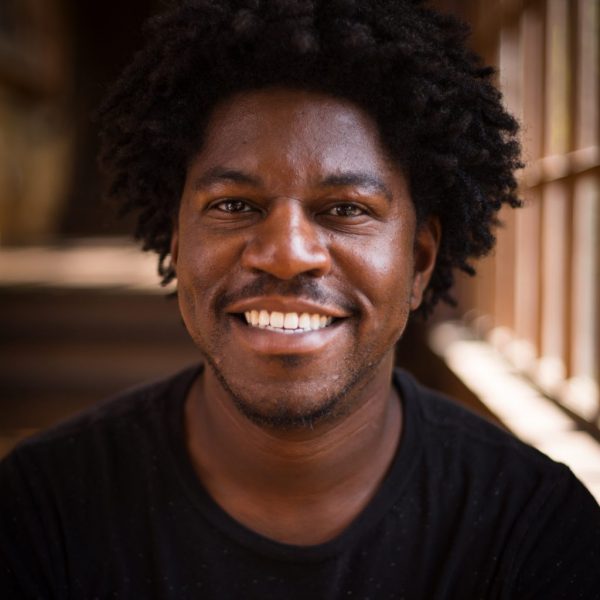Serginho Roosblad was the first fellow in a new program developed in collaboration with the Ida B. Wells Society for Investigative Reporting and The Associated Press. Roosblad held his fellowship at the AP as a video producer for the global investigations team for one year beginning June 14, 2021 before transitioning to the role in a permanent capacity. You can read more about his background and the fellowship here.
Tell us a little bit more about your work prior to your fellowship at the Associated Press?
Prior to my fellowship at the Associated Press, I was working as an independent documentary filmmaker on a variety of different project. But the majority of my work was as one of the producers on the feature documentary film ‘Exposing Muybridge’, featuring Gary Oldman. The film chronicles the life and accomplishments of motion picture pioneer Eadweard Muybridge. The film had its premiere at the DOCNYC festival in November 2021 and most recently it’s international debut at Sheffield Doc Fest in the UK. As a filmmaker, the film is a conclusion of a trilogy of documentaries on photographers that I made. The two previous shorts being on David Maisel and his photographs on one of the US’ most secretive military zones, Dugway Proving Ground. The first installment in the series, which was nominated for an Emmy Award, was on Jonathan Calm with who I travelled with across California and Nevada, documenting former Green Book locations.
Having lived and worked in numerous countries, what has been different about doing photojournalism/investigative work during your time in the US?
Overall, I haven’t observed many major differences between working in the U.S. and other countries. One of the things that is much more present while producing videos are copyright and the potential of being sued. It has never been at the top of my mind, until I came to the U.S. It’s not a bad thing, of course everyone who has created something deserves to be credited and/or compensated, but it’s the looming threat of being dragged to court for what could’ve been a mistake or oversight, that’s been somewhat ‘wow’ to me. In addition, I’ve been surprised by how many ordinary citizens mistrust journalism. And how that’s accelerated in the couple of years I’ve been living in the U.S. Despite having worked in countries with limited press freedom, ordinary citizens seemed to have less of a distrust of journalists.
What was your favorite piece that you worked on during your fellowship?
Two pieces stand out and that was the story on police use of force on children. And more recently the story of previously abducted, Ukrainian medic Yuliia “Taira” Paievska.
With much of your work being in film and photography, what kind of imagery are you looking to capture when working on an investigative assignment?
I like it when investigative stories are rooted in personal human stories. So much can be told and explained with numbers and documents, but to convey the impact of an issue, the personal story is the best way to convey that.
What would your advice be to young journalists interested in investigative work?
Don’t be intimidated by it. Investigative journalism might come across as intimidating because of the amount of work one has to do, or threads they must follow. Personally, I thought that investigative stories started with digging into document and archives, but that doesn’t necessarily hold up. Just like any other story, it all starts with being curious. Very curious. And tenacious in trying to still that ‘curiosity hunger’.
What were some skills that you learned or enhanced during the past year with the global investigations team?
I’d say my fact checking skills have been enhanced. With the AP being a provider of content to many clients across the globe, if we get things wrong, they get it wrong as well. So, it’s even more important that the facts are straight. And along those lines, as a filmmaker I’ve become much more conscious of how the viewer can interpret scenes or sequences of action.
What investigative topics and areas are you most looking forward to delving further into in the coming months?
The war in Ukraine will remain on the top of my work in the coming months. It’s been really humbling and, at the same time motivating, to see the reach and impact of the story on the medic Yuliia Paievska has been. And I look forward to continuing documenting the war and potential war crimes for the War Crimes Watch initiative, in collaboration with PBS/FRONTLINE. In addition, I also look forward to start exploring topics I haven’t before which are the oceans and fisheries.
You can connect with Serginho on Instagram & Twitter @sroosblad.

